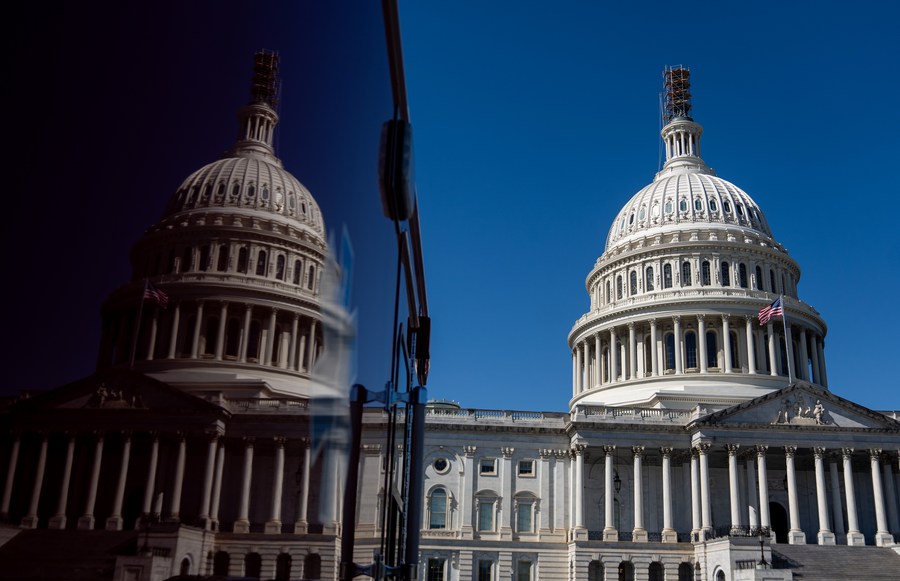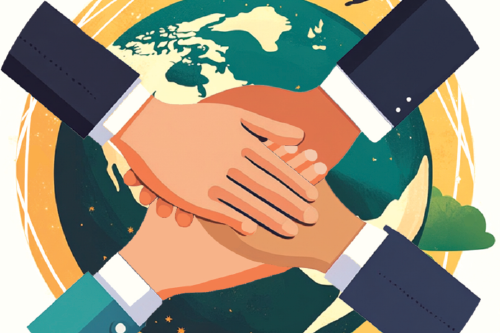US should concede China's vital role in global geopolitics


Despite the United States’ policy of counter China, contain China and resist China, there is a strong realization on the importance of China and that without China there is no hope for the world. The serious scholars, thinkers, politicians and policymakers conceived the vitality of China in the geopolitics and give due weightage. China has asserted itself in a positive manner and is deeply involved in international affairs. It positivism and constructive role in geopolitics is well conceived. It has emerged as a significant contributor to global peace, security, development, and prosperity.
In a recent diplomatic meeting held in Bangkok, China’s Foreign Minister Wang Yi emphasized the importance of fostering a relationship between China and the United States built on equality, mutual respect, and understanding. The talks involved Wang Yi and US National Security Advisor Jake Sullivan, exploring avenues for cooperation and addressing key issues.
Wang, a member of the Political Bureau of the Communist Party of China Central Committee and director of the Office of the Foreign Affairs Commission of the CPC Central Committee, urged the US to move away from a condescending attitude and embrace a stance of treating each other as equals. He stressed the importance of seeking common ground, rather than accentuating differences, and earnestly respecting, rather than undermining, each other’s core interests.
One of the key points discussed during the talks was the principle of one China and the commitment outlined in the three China-US joint communiques. Moreover, Wang reiterated the necessity for the US to abide by these principles and actively put into action its commitment not to support “Taiwan independence.” Furthermore, he emphasized China’s pursuit of peaceful reunification and urged the United States to support this endeavor.
China and the United States should treat each other as equals rather than take a condescending attitude, seek common ground rather than accentuate differences, and earnestly respect rather than undermine each other’s core interests, Wang stated. This sentiment aligns with the broader narrative of building positive and cooperative relations between the two nations.
These high-level discussions between China and the United States reflect a commitment to diplomatic engagement and the resolution of differences through dialogue. Top US and Chinese officials concluded two days of talks in Bangkok, aiming to enhance their relationship and address shared concerns. Jake Sullivan and Wang engaged in discussions for more than 12 hours, building on the agreement reached during the Biden-Xi summit in November.
While the two sides committed to continuing communication and exploring additional channels, the the Houthi attacks on ships in the Red Sea remains a point of contention between the two powers.
Beyond the Red Sea issue, Sullivan and Wang announced the launch of a US-China Counternarcotics Working Group and discussed plans for talks on the risks posed by advanced artificial intelligence in the spring. The officials also acknowledged recent progress in resuming military-to-military communications. The US framed these renewed communications as a crucial means to manage competition and tensions responsibly, especially concerning China’s Taiwan.
Amid rising tensions, Sullivan reiterated the importance of maintaining peace and stability across the Taiwan Strait, while Wang emphasized that the Taiwan question is China’s internal affair.
The talks reflect ongoing challenges in the US-China relationship, with both cooperation and competition in focus.
It is hoped that China and the US will join hands in maintaining global security, developments and prosperity. The immediate task ahead is stopping genocide in Gaza. China’s stance on Gaza is very clear and supports the UN resolutions to establish a sovereign state of Palestine from river to sea, without any influence from Israel. On ceasefire, the US needs to cooperate with the rest of entire world. Safety of Red-Sea is linked with safety in Gaza.
Zamir Ahmed Awan is a non-resident fellow with the Center for China and Globalization (CCG) and a sinologist at the National University of Sciences and Technology in Pakistan.
The views do not necessarily reflect those of China Daily.
If you have a specific expertise, or would like to share your thought about our stories, then send us your writings at opinion@chinadaily.com.cn, and comment@chinadaily.com.cn.


































